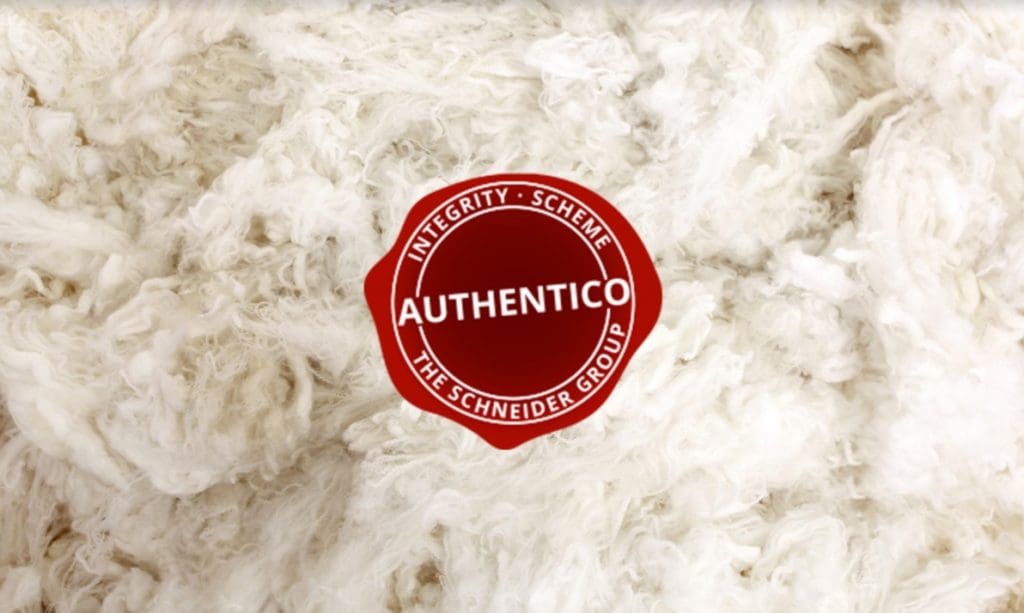
The Schneider Group has decided to only accept wool from flocks that have ceased mulesing. Image – Chantel McAllister.

AUSTRALIA’S arm of international luxury fibre processor The Schneider Group has decided to accept only wool from non-mulesed or ceased mulesed flocks for branding under its Authentico integrity scheme.
The Authentico scheme was launched last year and had been accepting wool from growers who used pain relief when mulesing sheep as well wool from flocks that had ceased mulesing.
The Schneider Group undertook to purchase Authentico-licenced wool that is suitable for its types, either privately or at auction, to build commercial quantities for export to its own specialised combing mills in Italy and Egypt.
However, in a shock move to Authentico members who were using pre and post-mulesing pain relief to qualify for the scheme, G Schneider Australia managing director Tim Marwedel has told Australian wool brokers the company’s retail brand clients will not accept a traceable supply chain that involved surgical mulesing.
The Schneider Group is a family-run, multinational company based in the south of Switzerland close to the Italian border. It is recognised as a world leader in the processing and supply of high quality wools and natural fibres, with combing mills in Italy, China, Egypt and Argentina. The group has been founded in 1922 by Giovanni Schneider as a wool trading company.
Mr Marwedel said there were now more than 400 registered Authentico wool growers and this was growing daily.
“Just 6 percent of our members were compliant as PR (pain relief) members.
“They were; however, some very important and high quality wool producers, so we didn’t take the decision lightly.”
In a letter to Australian wool brokers, Mr Marwedel said the company had tried extremely hard to convince its spinner and weaver clients of the merits of the use of a Meloxicam (pain relief) product in conjunction with Tri-Solfen after surgical mulesing.
“However, unfortunately none of our clients are willing to support the Authentico QA program while certifying this practice as an alternative to non-mulesing.
“We’ve explained the merits and necessity of this procedure to them, in order to provide them with the tools to educate their retail clients,” he said.
“But the overwhelming weight of consumer awareness and demands has influenced the decisions the retailers make regarding their brand.
“The retail brands we’re dealing with through our weaver clients are not prepared to accept a traceable supply chain that involves mulesing,” Mr Marwedel said.
“For sustainable and traceable wool supply, they are demanding to buy from farms who no longer mules.
“We have therefore made the unfortunate but necessary decision to alter the rules for Authentico membership. Only farms where mulesing is no longer practiced will be eligible.”
Mr Marwedel said the decision had not been taken lightly.
“We strongly believe in the attitude and professionalism of the Australian wool producer with regards to animal welfare.
“We’ll continue to support those clips when we have the opportunity to do so, for orders that don’t require the traceable Authentico brand.”
Decision disappoints Merino producers using new pain relief options
Mr Marwedel said the company was sure the decision would be taken with some level of disappointment and likely confusion following its recent communication to clients regarding pre and post pain relief.
Last month, Authentico members were told pre and post-operative pain relief was required for mulesing for growers to be eligible for integrity scheme registration.
“This is no longer valid for membership and our application online has been updated.”
Research co-funded by Australian Wool Innovation has shown that using a combination of Tri-Solfen and Buccalgesic pain relief products provides more prolonged relief from mulesing than using each of the products on its own. This finding has also been supported by CSIRO research undertaken in Armidale, NSW, by principal animal behaviour and welfare team scientist Dr. Alison Small, looked at Buccalgesic and Meloxicam products like Metacam 20.
New South Wales wool grower and stud breeder Hamish McLaren said Schneider’s decision was disappointing, especially to producers who had to keep mulesing with pain relief as the best animal welfare practice available to them.
“It’s disappointing for people trying to do everything for their sheep and using pain relief.”
He said some producers might try to stop mulesing, but the Authentico premium for non-mulesed wool was small and there was no premium for wool from flocks using pain relief.
The company has said about 95 percent of all Authentico registered wool growers have either ceased mulesing or are already working a non-mulesed operation.
Supply chain is Schneider’s most important asset
Mr Marwedel said The Schneider Group’s importance as a player in the Australian industry is such that it owns and operates four strategically-placed wool combing mills around the world plus two carbonising plants and two cashmere dehairing plants. He said the company was founded in 1922 when Giovanni Schneider registered to buy and export Australian Merino wool to European customers.
“Our supply chain is our most important asset and with more and more customers requesting full traceability of the natural fibres that they buy, we are in a very unique position.
“We think this alone is of most importance to the local industry,” he said.
Mr Marwedel said the company has its own auction buying staff and export operation, ensuring full traceability to mill.
“Our name is more important to the Italian and broader European markets and having our own buying team in Australian and New Zealand allows us to build relationships between the end user and the grower via our own combing mills and an open, traceable supply chain.
“Authentico products will only be available to a select group of our clients who share the same philosophy and our grower partners will be randomly audited on farm independent of the industry by Control Union,” he said.
“Our decision to take this path for our traceable supply chain is based on demand from our clients who are seeking full sustainability.
“Growers will continue to choose what is best welfare practice for their own circumstances and we support that.”

We are terribly sorry to have disappointed many great wool growers who are leaders in animal welfare practices.
We have been the very first ones to promote the alternative of the combination of analgesic and anaesthetic.
We have been trying to convince as many of our clients as possible and we’ve also tried to involve the major retailers.
Strangely enough, while the sustainability managers of these bands understood it, marketing departments gave the red light as the m-word (mulesing) became a taboo to most consumers.
We promise to continue to explain the benefits of the combination of analgesic and anaesthetic and hopefully, one day, we will be able to find a suitable buyer for these very special wools.